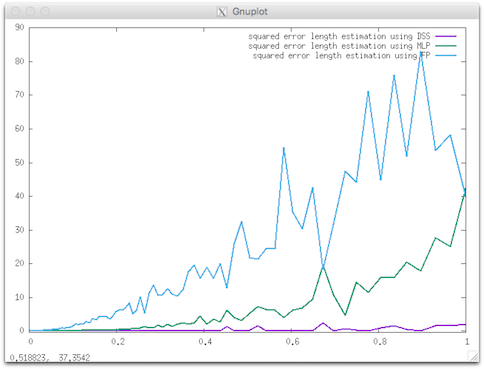Generates multigrid length estimations of paramteric shapes using DGtal library.
It will output length estimations (and timings) using several algorithms for decreasing grid steps.
Usage: LengthEstimators [options] –shape <shapeName>
Allowed options are :
-h [ --help ] display this message
-s [ --shape ] arg Shape name
-l [ --list ] List all available shapes
-R [ --radius ] arg Radius of the shape
-A [ --axis1 ] arg Half big axis of the shape (ellipse)
-a [ --axis2 ] arg Half small axis of the shape (ellipse)
-r [ --smallradius ] arg (=5) Small radius of the shape
-v [ --varsmallradius ] arg (=5) Variable small radius of the shape
-k [ --k ] arg (=3) Number of branches or corners the shape
--phi arg (=0) Phase of the shape (in radian)
-w [ --width ] arg (=10) Width of the shape
-p [ --power ] arg (=2) Power of the metric (double)
--hMin arg (=0.0001) Minimum value for the grid step h (double)
--steps arg (=32) Number of multigrid steps between 1 and hMin
(integer)
The list of 2D shape are : -ball Ball for the Euclidean metric. Required parameter(s): –radius [-R]
- square square (no signature). Required parameter(s): –width [-w]
- lpball Ball for the l_power metric (no signature). Required parameter(s): –radius [-R], –power [-p]
- flower Flower with k petals. Required parameter(s): –radius [-R], –varsmallradius [-v], –k [-k], –phi
- ngon Regular k-gon. Required parameter(s): –radius [-R], –k [-k], –phi
- accflower Accelerated Flower with k petals. Required parameter(s): –radius [-R], –varsmallradius [-v], –k [-k], –phi
- ellipse Ellipse. Required parameter(s): –axis1 [-A], –axis2 [-a], –phi
Example:
Application of the multigrid length estimation on a flower shape with 5 petals and maximal radius 20 and min 5:
$ lengthEstimators -s flower -k 5 -R 20 -r 5 --steps 256 > length.dat
You can display using gnuplot:
$ gnuplot
gnuplot> plot [0:][-0.5: 90] 'length.dat' using 1:(($7-$3)*($7-$3)) w l title "squared error length estimation using DSS", 'length.dat' using 1:(($8-$3)*($8-$3)) w l title "squared error length estimation using MLP", 'length.dat' using 1:(($9-$3)*($9-$3)) w l title "squared error length estimation using FP" linewidth 2
You should obtain such a result:

Resulting visualization.
- See also
- lengthEstimators.cpp

 1.8.10
1.8.10